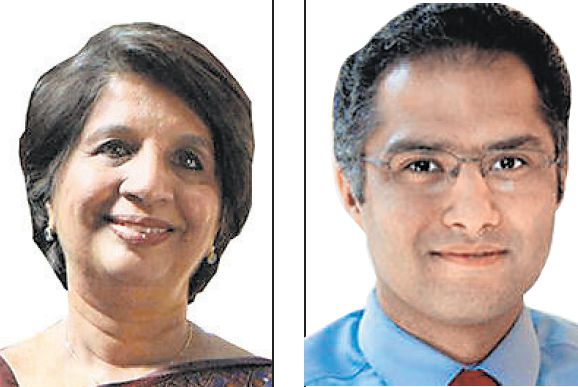 By NIRUPAMA RAO and ATUL POKHAREL (OCTOBER 17, 2015) – As long as the Nepalis perceive the outcomes of the special relationship between India and Nepal to be unfair, it will be difficult to secure their cooperation. It is upto Mr. Modi to change that
By NIRUPAMA RAO and ATUL POKHAREL (OCTOBER 17, 2015) – As long as the Nepalis perceive the outcomes of the special relationship between India and Nepal to be unfair, it will be difficult to secure their cooperation. It is upto Mr. Modi to change that
It has been a difficult six months for the Nepali people. This week, they faced another humanitarian crisis because the flow of fuel and supplies from India stopped. Newspapers reported that hospitals and clinics ran out of supplies, restaurants and businesses closed, neighbours scrambled for firewood to cook and stay warm, and transportation shut down. They also questioned India’s claim that the protesting ethnic groups inside Nepal were obstructing supplies. How, they ask, has the fuel supply resumed but internal protests continued? Furthermore, a new government came to power in Nepal that seems less amenable to their dissenting views. So, was it all about India after all?
Prime Minister Narendra Modi, who is believed to understand the concept of a shared South Asian “commons”, is seen as having missed a unique opportunity to unify the people of the region. The introduction of a new Constitution in Nepal presented a chance to alter the entrenched belief that the outcomes of India’s special relationship with Nepal will always be unfair. Instead, weeks of suffering from the ‘blockade’ have led the Nepalese to drown in suspicion: may be India didn’t like the new Constitution; it knew northern trade points were still damaged by the quake; it callously imposed a weeks-long blockade on their crippled country; the international community silently stayed on India’s good side; and once Nepal’s government agreed to change the Constitution, the blockade appeared to ease. Unfortunately for India, most Nepalis blame Prime Minister Modi, the public face of the Indian government in Nepal.
An uneven interdependence
The relationship between India and Nepal is complex, but should it be damaged thus? India increasingly needs Nepal to safeguard its vital interests. But Nepal depends on India far more. Nearly all of its fuel imports come from the Indian Oil Corporation. The Nepalese Rupee continues to be pegged to the Indian Rupee. India is Nepal’s main trading partner, and the border is open. Nepalis have served in the Indian Army, and receive pensions in retirement. By some estimates, one seventh of the entire population of Nepal resides and works in India.
Despite this uneven interdependence, Indian diplomats have sought to cultivate the delicate impression that they are not viceroys. Even before the recent events, they strained to convey that India cared about the well-being of the people of Nepal, regardless of political uncertainties. They reiterate that they attach the greatest importance to the relationship between India and Nepal.
The people of Nepal are confused by the mixed messages. After eight years and two elections, they finally wrote a Constitution that they feel India coldly acknowledged. India then reacted indifferently, in their view, to the impending humanitarian crisis. Furthermore, they saw Prime Minister Modi’s invitation to the new Prime Minister of Nepal to visit New Delhi as a ‘summons’. So they ask, does India care about the people of Nepal or is it concerned only about its interests? Is it ready to subject an entire population of more than 27 million to eat bitterness, right when it hurts most, to get what it wants? How retributive is India going to be when the ups and downs of neighbouring democratic processes lead to outcomes it may not like?
Change perceptions
There is a critical need for India to shape perceptions in Nepal and erase misunderstanding. It must reaffirm the unity of the people of Nepal while recognising their diversity. Next, it should act visibly to provide relief to those facing scarcity just as the holiday season begins. This current crisis has political origins. But India should respond as it did after the earthquake. It was the compassionate first responder, decisive and focussed on alleviating the palpable suffering of the population of a neighbouring country.
Nobody denies India’s immense power in Nepal. With power comes responsibility. As long as the people of Nepal perceive the outcomes of the special relationship to be unfair, it will be difficult to secure their cooperation. It is up to Prime Minister Modi to change that. South Asia and the world are watching.
(Nirupama Rao, a former Foreign Secretary of India and former Ambassador to China and the U.S., is currently at the Watson Institute for International and Public Affairs, Brown University, U.S. Atul Pokharel is a postdoctoral fellow from Nepal at the Watson Institute for International and Public Affairs. ) This article has been originally published in The Hindu on 17 October 2015.

